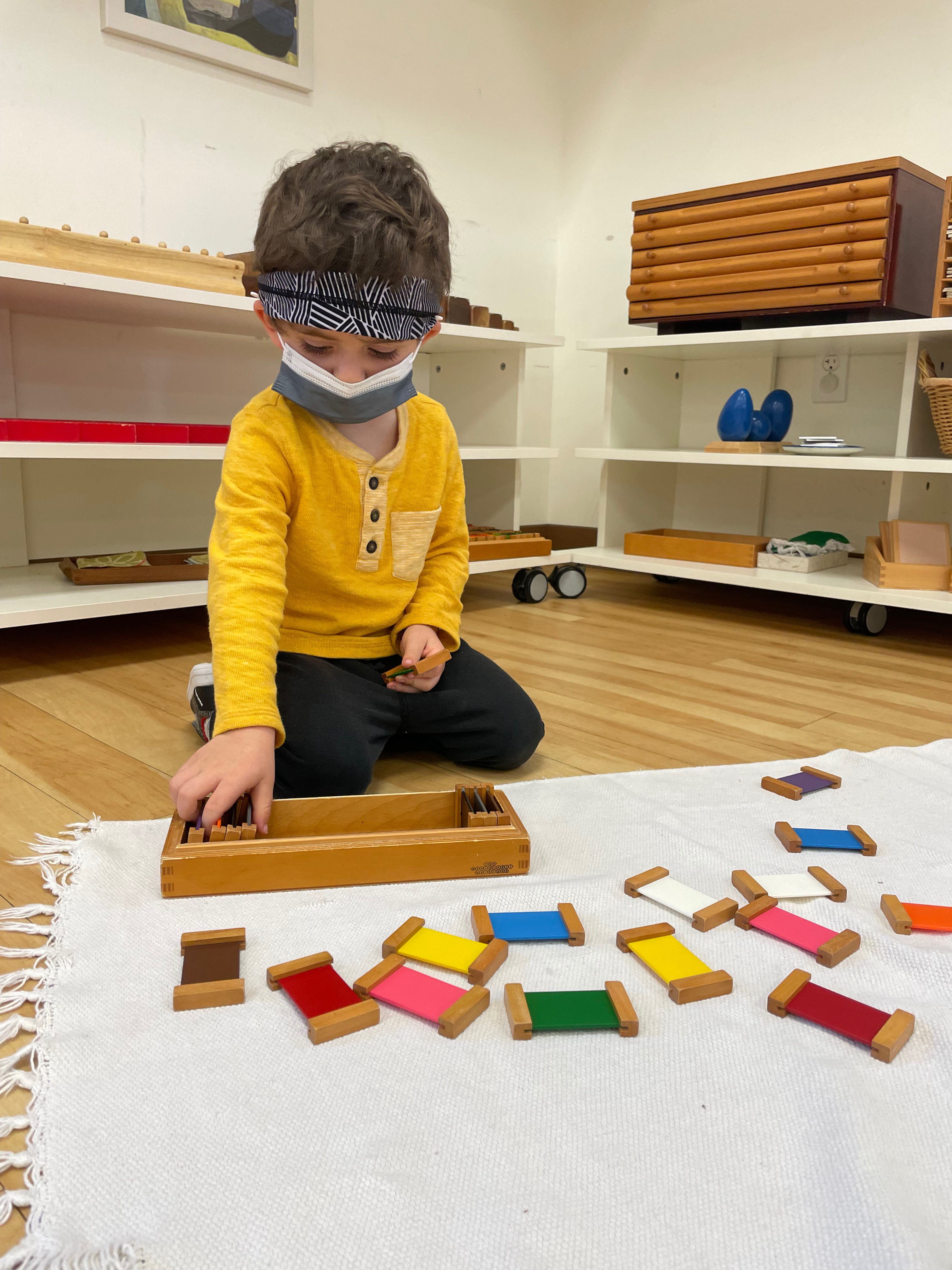(858) 759-0631
How can we foster our children’s intellectual curiosity and enthusiasm for learning to help them grow into independent thinking adults?
How can we focus on achieving ‘The Golden Ticket’ that education can ultimately bring without the risk-aversion and anxiety so many students face as they focus on grades rather than the process of learning?
As educators, we know that learning is difficult and that failure is integral to the process. For many students, the ‘fear of failure’ trumps the ‘love of learning,’ leading to minimizing risk-taking amid a quest for top marks.
This fear of failure is often instilled by parents who are grade-focused. Many of us push our children from the get-go as a way of teaching how the world works—we reward points, scores, and awards rather than character and personality traits.
As a result, students focus on grades first and the adventure and diligence of learning last.
Here is a key Montessori difference: a Montessori education bridges this gap early on about what truly matters—the foundation to building a life of learning about the self and the world around us.
The Montessori Method is about building a ‘wholeness’ of learning from the inside of a child to the outside world he or she faces daily.
Contrast that with the public school rote, group method that teaches the outside world first with little thought on how to construct the student’s underpinning toward self-motivated and resilient learning as tasks grow increasingly harder.
There are countless 4.0 GPA high school students who have walked away from electives like choir, band, drama, and athletics because they were not Advanced Placement (AP) classes. With limited social and creative skills, they sweat the grind of seeking perfection at all costs—rather than becoming well-rounded individuals. This construct creates ‘half a child.’
As parents, we are to blame for that.
Still, can you blame us?
We sacrifice daily for our kids’ efforts toward winning ‘The Golden Ticket’—a top college acceptance. We’ll bear any burden to get them into the ‘best’ private schools or gifted schools because of the ‘success pedigree’ they convey.
But, here’s the rub.
We need to recognize that our goal is to prepare our children’s total development—educationally, socially, morally, and culturally. It’s our job to instill a quest for wisdom and self-development—a love of learning rather than learning for the sake of grades.
How many kids do we know who have succeeded because they’re well-rounded—regardless of where they went to school or their grades? Conversely, how many awkward smart kids become awkward adults?
That’s the difference: Montessori is focused more on knowing what the right answer means rather than knowing the right answer.
The ability to synthesize and apply skills and concepts is what’s valuable.
And, the caliber of teaching should engage students in a process of discovery, even if the subject matter is not the child’s favorite or easiest. Good teachers focus on the process, not just the destination.
This is the value of Dr. Maria Montessori’s teaching: a focus on the foundations to create a lifetime of learning rather than a season of grade-based learning based on a fear to fail.
We provide individualized learning. We instruct students, motivate them and assign tasks based on acquiring knowledge. We evaluate their performance and provide feedback. Once they’ve grasped the skill and concept, they will receive the next lesson up. Using this system, children are moving forward when they are ready but also allowed to take time in an area they struggle in.
For us, learning is the goal; the grade simply illustrates how well the child has mastered the task. And that is how the love of learning can defeat the fear of failure.
Blog Cateogry:
Featured Image:

